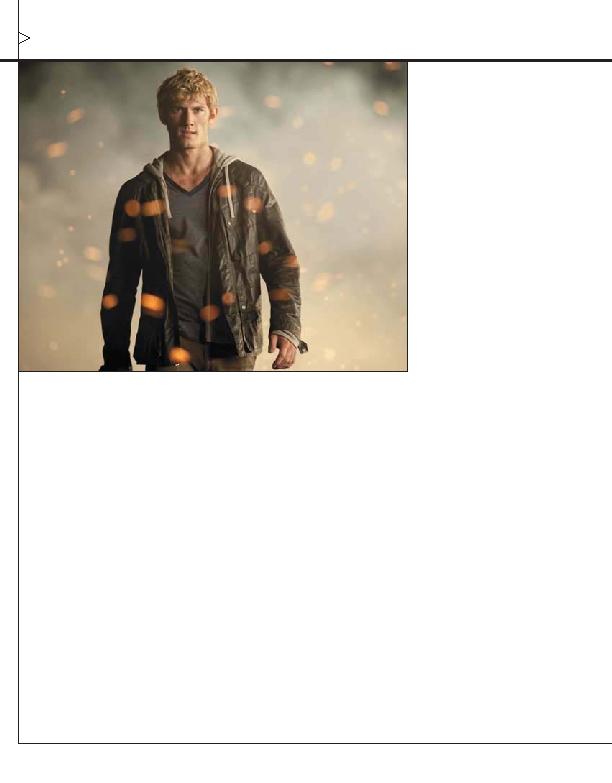
the summer of 2009 and noticing that Dream-
works had bought the rights to an unpublished
book called "I Am Number Four,"about a super-
powered teenage alien hiding out in a small
town on Earth. "I remember thinking, just read-
ing the log line, `If somebody doesn't call us
about this I'm going to be very jealous, because
I know this is a movie we could write well,'"
Gough chuckles. The screenwriters managed to
wrangle an advance copy of the book's manu-
script and had only been reading it for a few
days when the call came from Dreamworks.
"From there it happened very quickly."
James Frey (Kissing a Fool), one of the book's
co-authors who wrote under the pseudonym
Pittacus Lore. Gough and Millar would explain
what they wanted to do in the film and Frey
thor, in turn, would mention ideas for possible
future books to make sure the movie con-
tained the seeds of these ideas and could be
turned into a series. "It was an interesting
process," Gough says. "In a way, the novel and
the movie had kind of a simultaneous devel-
opment track. James is a brilliant writer and
obviously understands the movie business and
could not have been a better collaborator."
knows three of his fellow refugees have al-
ready been killed. Constantly being on the run
was reminiscent of The Fugitive, and Gough
also found parallels with one of his favorite
childhood movies, Running on Empty, which is
about a boy forced to live in hiding because of
his parents' secret criminal record. Unlike their
own show, Smallville, here was an alien teen
being told not to have relationships or make
identity. "To load it with that much dra-
matic possibilities and emotional stakes
and, obviously, life-and-death stakes,"
Gough says, "is what made it feel like dra-
matically new and interesting territory we
wanted to explore."
big secret. John is one of nine members of
a ruling caste hiding on Earth after his
planet was conquered. John and his
guardian, Henri (Timothy Olyphant), have
had a dozen identities before settling in Par-
adise, Ohio, but now things are different be-
cause John's fallen for a girl, Sarah (Dianna
Agron), and found a best friend (Callan
McAuliffe). Despite Henri's warnings, he
wants to stay and have a normal life. Alas,
the alien hunters chasing after them have
already killed three of the other caste mem-
bers and John's number is finally up.
book that they had also wrestled with
when writing Smallville. The hardest char-
acter to write in these stories, Gough ex-
plains, is often the girlfriend, the character
the audience needs to relate to and like,
but who is always left in the dark. "For us
on Smallville, Lana Lang was a very hard
character because she didn't know any-
thing about the secret," he explains. He
also points out the challenge of a roman-
tic triangle and making Sarah seem like
someone smart and likable even though
those relationships and being able to defend
the positions," Gough says. "So you under-
stand why she's dating him. She has reasons,
they're valid reasons. It's looking at those
iconic high school relationships you see in
these movies and how are they real, how do
you understand them, what's a little bit of a
twist on them so you haven't seen that ver-
sion of the relationship before."
liners, although these outlines rarely pass 15
pages. "It's never about taking an outline,
adding dialogue and stirring," Gough says,
"because that's not what writing is. Outlines
or treatments are basically a roadmap so you
know where you're going and you understand
the big picture. Then, for us, it's helpful be-
cause once you get writing, it allows you to
take detours and find things. Because you